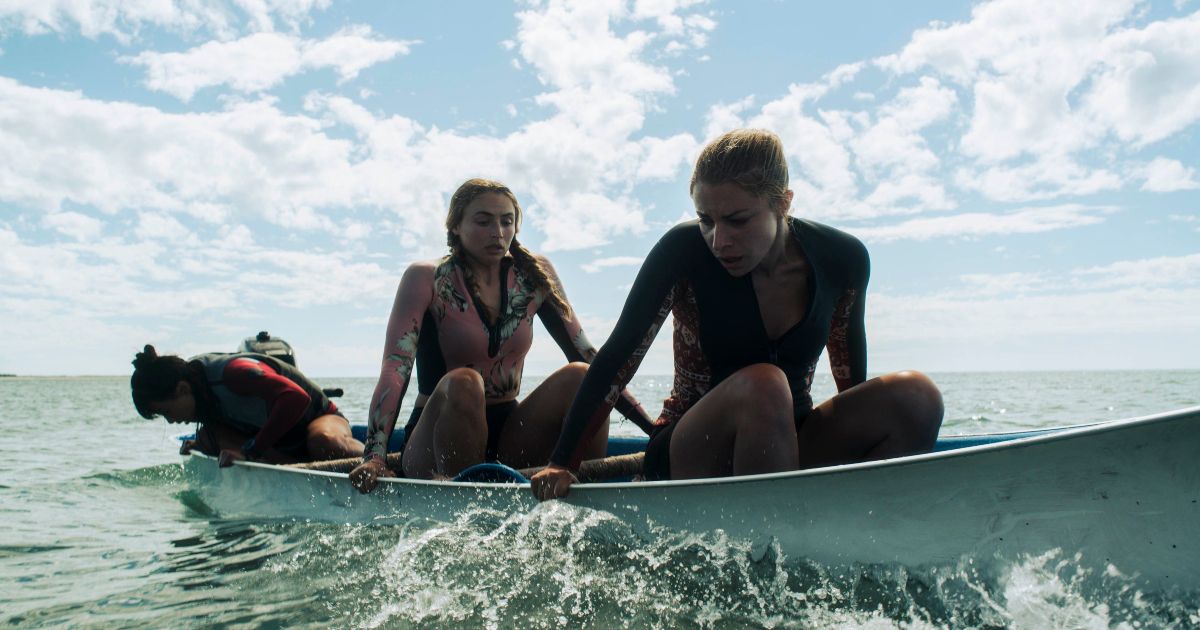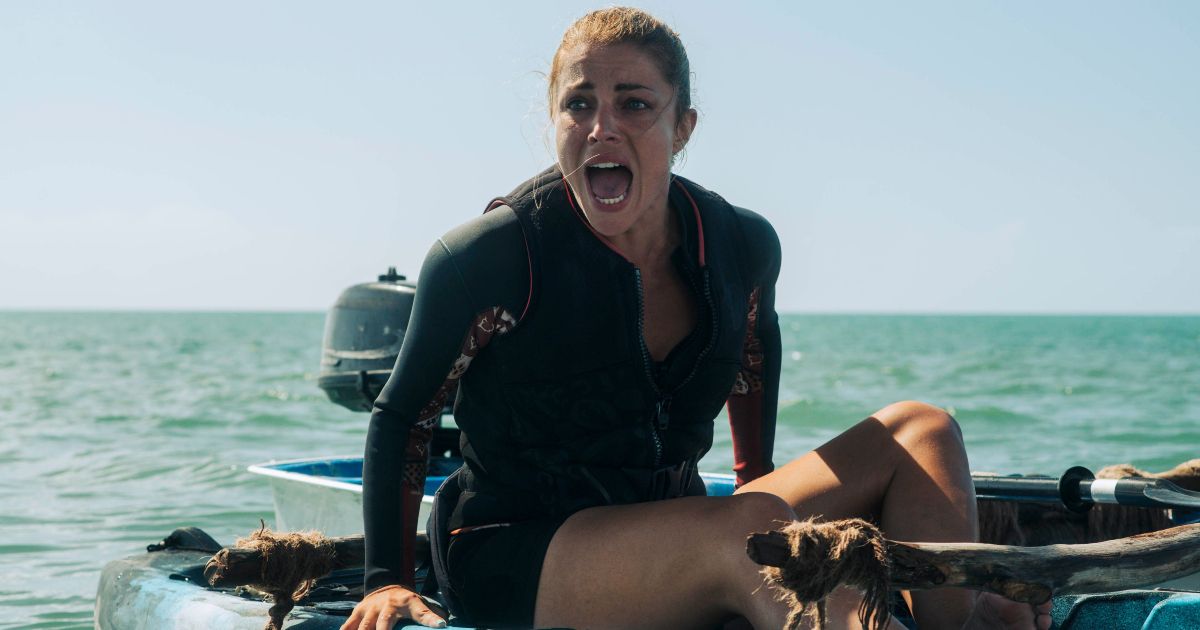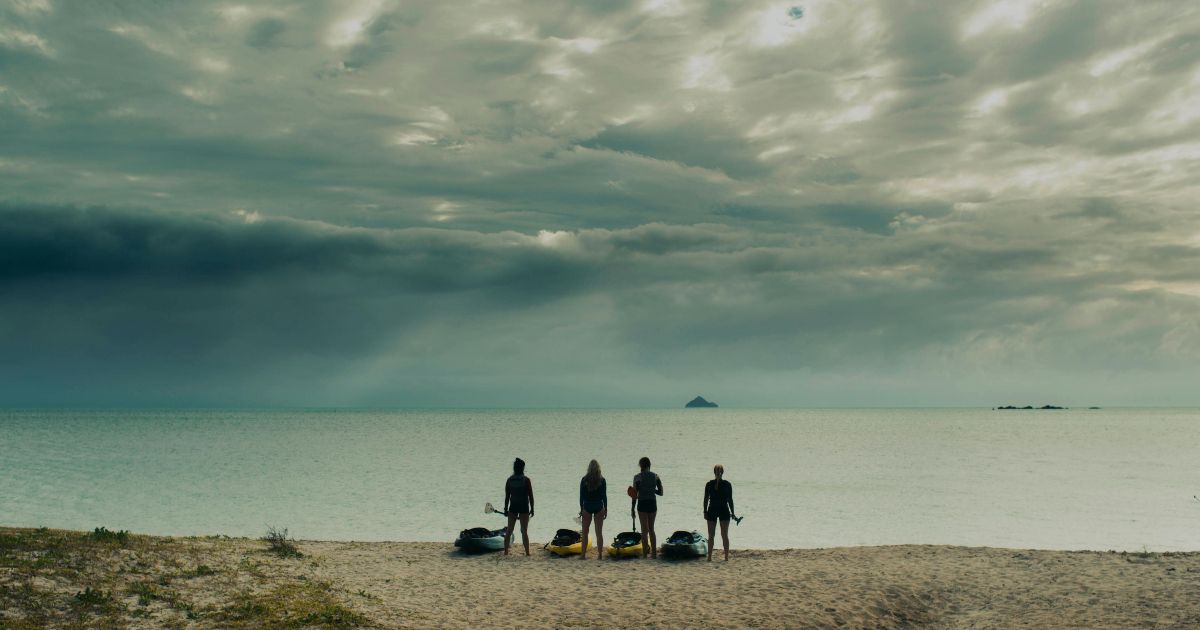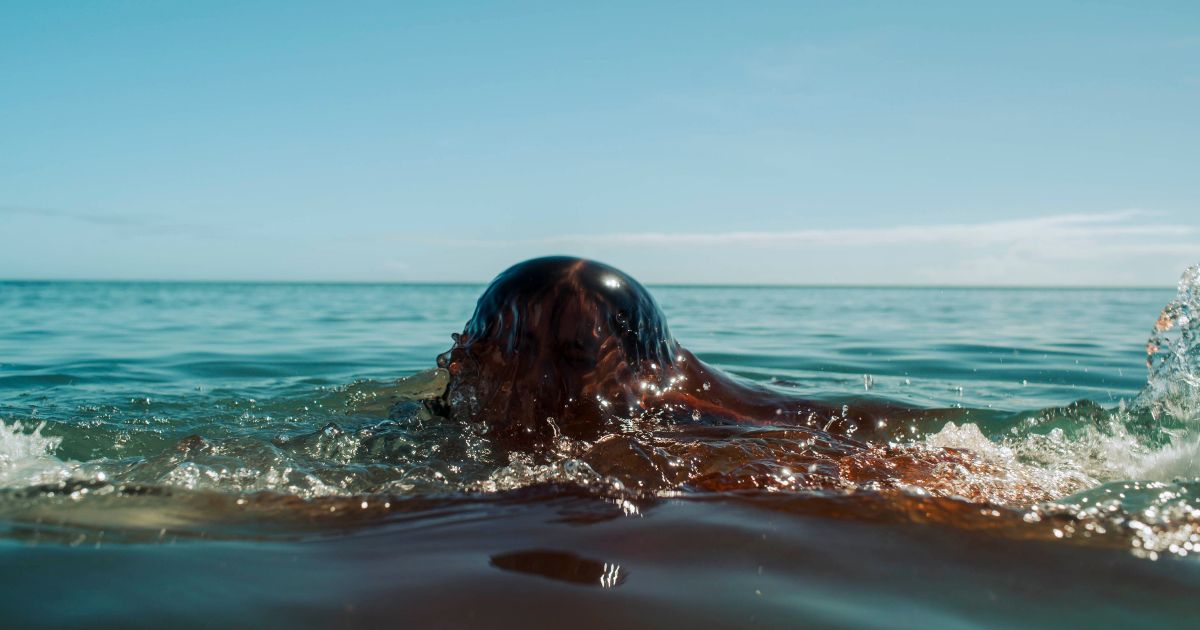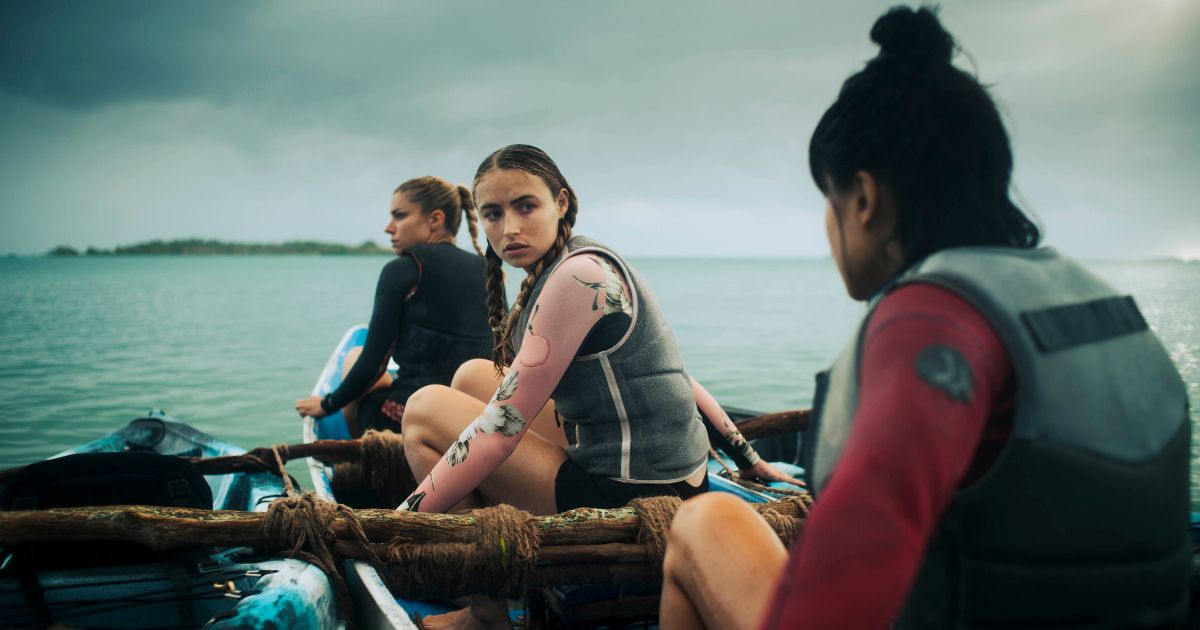There's always been something about (or in) the water that has both fascinated and disturbed Andrew Traucki. Though it may be a bit of unfortunate typecasting (as Traucki has a lot to offer on land), the writer/director has cemented himself as the modern master of underwater horror. From the acclaimed alligator horror of Black Water and its sequel to one of the most beloved aquatic creature features of the past two decades, The Reef, Traucki is the king of the seas. Even his experimental short for ABC's of Death dives into the water.
Now, Traucki is following up The Reef with a sequel (in name and shark only), The Reef: Stalked. It's yet another of his expert waterlogged thrillers, pitting a group of Australian women in the water of far north Queensland against one very determined shark. Teressa Liane leads the pack, continuing a very good year between The Spy Who Never Dies and Magnum P.I., as she struggles with a group of friends some time after a personal tragedy. The result is a visually gorgeous, wonderfully edited addition to the many shark movies out there. Traucki and Liane sat down with MovieWeb to discuss the film.
Andrew Traucki on Underwater Movies
Traucki has a love-hate relationship with the water, something he certainly expresses in films which simultaneously luxuriate in the beauty of the seas and nature while also invoking terror about the water and what lies beneath it. "I love the sea," Traucki tells us, "I live about 10 minutes from the sea. I surf, I dive, I've loved the sea since I was little, so I just naturally gravitate to water. I do love it. Unfortunately, it's not nice to work in. It's a really hard thing, to be filming water, especially saltwater, and it can really damage the gear very quickly." As difficult as it may be to work with water, Traucki keeps diving right back in. As he says:
As much of the time that you're going, "why did I suggest this," when you finish the film, you realize that you did it for a purpose, and hopefully it comes across in the realism and the feeling of the film, and it was done for a reason. So yeah, I still love the water. Although, you know, I was very happy to be in the edit suite after the shoot because I didn't have to look out and see what's the wind doing, what's the rain? Yeah, I'm just a water baby.
The Reef: Stalked makes it look easy, but making a film that's set almost entirely on or around the water is a challenging task. "The problem with filming outside is that you're still totally trapped by the elements," Traucki says. "Wind is terrible, everything gets blown around, especially the kayaks, or if it's a rainy day then you can't film, and then with continuity, some days it's beautiful and no clouds, next day there are lots of clouds in the sky." This is often the problem with 'characters against nature' type conflicts -- nature doesn't stop acting when you say cut.
"I'd literally get up, have my breakfast and put my wetsuit on at about six in the morning, and then about six in the afternoon I'd take it off, so you're in a wetsuit all day," Traucki recalls. "It's not the nicest way to spend the day. But you know, everyone was fantastic. Everyone really pulled together and made all that disappear so that we could film the movie." The struggles with nature and strenuousness of the production extends past Traucki and obviously includes the cast, Ann Truong, Kate Lister, Saskia Archer, and Teressa Liane.
Teressa Liane Schools a Shark in The Reef: Stalked
One of the most important aspects of filming a movie on the water is rehearsal. With all the long shots and the crew needing to be distant from the cast, if everything hasn't been meticulously rehearsed then it takes an inordinate amount of time to communicate and set up next shots. This isn't like a film set where the director can just say "cut" and walk up to the actors; Traucki and his crew are spread out in the water depending on the shot, and the actors are as well, so an excessive amount of takes can be not only time-consuming but disastrous.
"We knew from the start that the most important time to prep for the characters was going to be that first week of rehearsal that we got," Liane tells us, "and it was a really intense training. Then throughout the shoot, we had a really great crew that were pretty much right by us whenever we needed them right before they called action, otherwise, they kind of had to get out of the way." Like the characters in The Reef: Stalked, the actors were largely on their own once the action started.
"You definitely feel it on set," Liane says, "like, you really need to make pretty much every take count. The tides were changing, and we were really made aware of the time being important. So it could be intimidating, but I think we tried to just roll with it and make sure that we were there to support each other and just do the best we could."
Fortunately, Liane likes the water as much as Traucki. "I love swimming," she says, "it wasn't necessarily like a skill, but for the character, Nic, it was definitely already there right from the beginning that this was something she's been doing since childhood. It was really a way that she connected with her older sister particularly, and that was something that I wanted to make sure was a definite skill that I wasn't even thinking twice about when we were filming. So I made sure I did a bunch of just additional swimming training before the shoot. That physicality was something that we needed to really prepare for beforehand, because we just didn't have time once we were shooting."
Domestic Abuse and the Allegory of the Shark in The Reef: Stalked
One of the most interesting things about The Reef: Stalked is how it uses the killer shark as a manifestation of Nic's grief, anger, and trauma. As Liane said, her character had a close bond with her sister, who is killed by drowning near the start of the film. Getting back on the water after spending a long time away from her family, Nic is essentially facing her fears, and the shark becomes a bloodthirsty allegory with multiple interpretations, either a representation of an abusive boyfriend (sharks are called 'the man in the gray suit') or the guilt and pain Nic has repressed which is now emerging from the deep to wreak havoc.
This more metaphorical approach to the shark attack (while still maintaining the inherent suspense and thrill of this kind of movie) was a major purpose of Traucki and a big draw for Liane; The Reef: Stalked almost feels like Traucki's own unique variation on the feminist allegories of The Descent. "As I've been making these films," Traucki explains, "I've gone from just 'I've got to make a thriller' to wanting to make more elevated thrillers, something that has a little more resonance to the audience when they leave the cinema or wherever they're watching it." Traucki continues:
It was really important to me. This topic, I think it's a worldwide problem, but in Australia, it's a terrible, terrible situation where a woman a week dies of domestic violence, and you know, it's just really unacceptable. I just thought, maybe there's a way to take this popular form [of a shark movie] and have a message about that. Maybe we can help spark a conversation or something, whereas people would normally not talk about it. Because one of the main problems, I believe, with domestic violence is that people keep it to themselves, and it becomes this dark secret. I surf, so I knew that sharks are called 'the man in the gray suit,' and so I sort of put those two ideas together.
These were difficult waters to navigate, though. "It's always tricky when you're trying to put a more in-depth idea into a thriller," Traucki says, "do you just keep your foot to the pedal and keep on providing thrills, or do you back off for a bit and allow the more elevated idea to come through?" The filmmaker certainly pulls it off here, though, because The Reef: Stalked can certainly be enjoyed as an entertaining thriller, but the subtle strands of allegorical substance certainly tie everything together and make the film stand out from the masses of shark movies. The shark in the film is a dangerous killer and a conversation-starter, to boot.
Women Sacrifice For Each Other in The Reef: Stalked
"Honestly, to me," Liane says, "this shark essentially is embodying pretty much everything that she's running from. It is this need to face a fear, it's needing to overcome something that is not always visible. It's basically all of these emotions and the trauma that she just can't get away from, and choosing to face that was huge. I think that is almost what helps to bring her out of herself and that kind of fogginess of depression and trauma." There was something about Nic's battles with her friends against this shark which really resonated with Liane. As she says:
Essentially it's because of the people that she loves, needing to [fight the shark and face her traumas] for them. It's needing to do it for someone else, because sometimes that is what it takes. It's not necessarily a choice for yourself, it's for someone else. And I think that was my connection to it. It's more than a shark to Nic for sure.
Regardless of how you view the shark, Traucki films it wonderfully well in a professional secret he'll likely keep to his grave. He wants to get out of the water and make some great films on land, but for now, The Reef: Stalked continues to prove his mastery of the seas.
From RLJE Films and Shudder, produced by Andrew Traucki, Michael Robertson, Neal Kingston, Jack Christian, The Reef: Stalked premiers in theaters, on demand, and especially on Shudder today.

.jpg)
